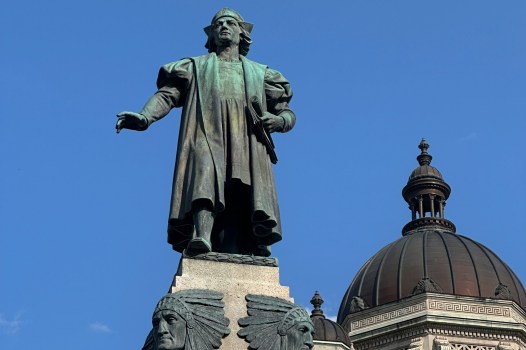
Christopher Columbus’s journey in 1492 marked a pivotal moment in history, connecting the Eastern and Western Hemispheres. Sponsored by Spanish monarchs Ferdinand and Isabella, Columbus set sail with three ships—the Nina, Pinta, and Santa Maria. This expedition initiated an era of global exploration that would change the course of human history.
The fleet embarked from Palos de la Frontera, Spain, on August 3, 1492. After a challenging journey of 35 days across uncharted waters, Columbus and his crew made landfall in the Bahamas on October 12. The ships, particularly the flagship Santa Maria, which measured 117 feet, faced numerous hardships, including limited provisions and the threat of mutiny among the crew. Despite these trials, Columbus’s determination led to the discovery of a new world.
Columbus’s original goal was to reach the Spice Islands of East Asia. European explorers were drawn to the wealth of trading cities in Asia, as highlighted by the travels of Marco Polo. Yet, the unexpected encounter with the Americas redefined European perceptions of the world. As described by the History Channel, “With the men close to mutiny against their ‘foreign’ captain, Columbus was about to turn back when the cry went out at 2 a.m. on October 12 that land had been sighted.”
Despite his navigational achievements, Columbus’s governance on the island of Hispaniola was fraught with difficulties. His leadership style raised concerns, and historical accounts highlight the brutality associated with the European conquest of the Americas. Nevertheless, understanding the significance of Columbus’s voyage requires a nuanced perspective that separates his personal shortcomings from his monumental achievements.
Biographer Samuel Eliot Morison emphasized Columbus’s remarkable persistence, stating, “We are right in so honoring him, because no other sailor had the persistence, the knowledge and the sheer guts to sail thousands of miles into the unknown ocean until he found land.” This perspective recognizes Columbus’s audacity in venturing into uncharted territories, which led to the most significant geographical discovery in recorded human history.
The ability to cross the Atlantic Ocean successfully was not unique to Columbus, but he distinguished himself by embracing the winds at his back, a strategy that previous explorers had avoided. Felipe Fernandez-Armesto noted that earlier attempts to traverse the Atlantic had failed because explorers clung to westerly winds. Columbus’s decision to navigate differently was crucial to his success.
The legacy of Columbus is complex and multifaceted. While his navigation achievements are celebrated, the impact of his voyages on indigenous populations and subsequent colonialism raises important ethical discussions. This duality is reflected in the ongoing debates about the celebration of Columbus Day in various regions.
In summary, Columbus’s journey in 1492 reshaped the global landscape, initiating an age of exploration that would forever alter human interaction across continents. Recognizing both his navigational successes and the darker aspects of his legacy invites a broader discourse on the implications of his discoveries.






